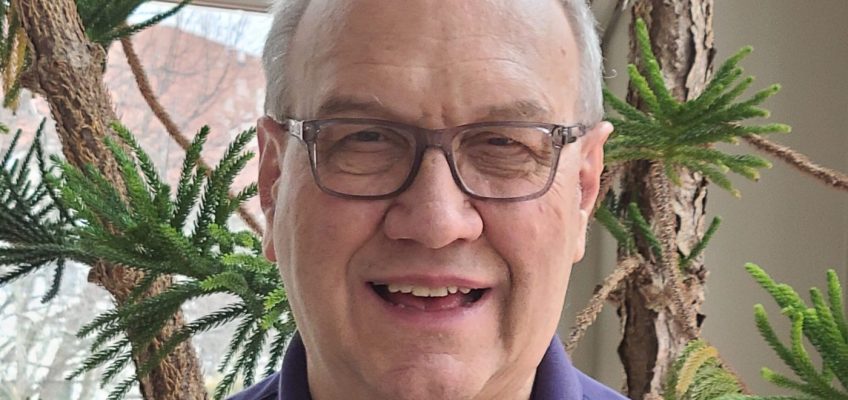It’s almost time for the 2024 Olympics. Get ready for all the action — everything on the track, courts and fields, in the pools and all the other events — with a guide that tells you everything you need to know about the global gathering in Paris.
How can I watch the Olympics?
In a variety of ways, on a variety of channels.
Each day’s most popular events will air live on NBC in the morning and afternoon in the United States. NBCUniversal says the Paris Games will have more programming hours on NBC than any previous Olympics.
Mike Tirico will host two daily Olympics shows, one that coincides with prime time in Paris (2 to 5 p.m. Eastern in the U.S.) and features live competition in marquee sports like swimming and gymnastics. The other, during prime-time hours in the United States while Paris sleeps, will be a curated view of the day’s best action.
USA Network, E!, CNBC and GOLF Channel also will show live action and Olympic programming. Peacock will serve as the U.S. streaming home. It will stream every sport, including all 329 medal events.
When do the 2024 Olympics start?
The action begins on July 24 with eight men’s soccer matches and the preliminary phase for rugby sevens. The schedule for the following day includes archery, women’s soccer, women’s handball and rugby sevens, and the opening ceremony is scheduled for July 26.
How are they doing the Paris Olympics opening ceremony?
The bold, daring plan has about 10,000 athletes parading on more than 90 boats on the Seine River for 6 kilometers (3.7 miles). The open-air ceremony will be held during sunset and is expected to last nearly four hours, transforming Paris and its iconic landmarks into a giant stage.
Safety is a concern. French President Emmanuel Macron has said the ceremony could be shifted to the Stade de France if the security threat is deemed too high. But organizers are moving forward with their open-air plans. About 45,000 security force members will be deployed, and the airspace and all airports within a 150-kilometer (90-mile) radius around Paris will be closed for the proceedings.
French soldiers from the Operation Sentinelle patrol on boat on the Seine River in Paris on July 17, 2024. The anti-intrusion water barrier is ready on the Seine in eastern Paris, and sonar equipment is submerged at the bottom of the river: the French army is deploying ‘exceptional resources’ to secure the embarkation area for the 10,000 athletes who will take part in the opening ceremony of the Olympic Games. (ALAIN JOCARD/AFP via Getty Images)
About 220,000 invited and security-screened spectators are expected to fill the upper tiers of the river’s banks, and another 100,000 paying spectators will watch from the lower riverside and around the Trocadéro plaza.
What’s the Olympics schedule?
Swimming and gymnastics both begin on July 27. Swimming finishes on Aug. 4, and the final day for artistic gymnastics is Aug. 5. Track and field runs from Aug. 1-11.
The men’s basketball final is on Aug. 10, and the women’s championship is the following day. The gold medal match for men’s soccer is on Aug. 9 at Parc des Princes, and the women hold their final at the same venue the next day. Roland Garros hosts the women’s singles final for tennis on Aug. 3, and the men’s singles championship on Aug. 4.
What are the new 2024 Olympics sports?
Breakdancing makes its Olympic debut at the Paris Games in another step in the International Olympic Committee’s pursuit of a younger audience. Judges will score breakers using what’s known as the Trivium judging system. A panel of five judges scores each breaker on creativity, personality, technique, variety, performativity and musicality.
Two dancers perform breakdancing during a tribute evening to Pierre de Coubertin and the creation of the modern Olympic Games at the Sorbonne University in Paris on June 23, 2024. (OLYMPIA DE MAISMONT/AFP via Getty Images)
Who to watch at the Paris Olympics?
It’s going to be a starry summer in the City of Lights.
Simone Biles is back, looking to add to her seven medals from two previous trips to the Olympics. The American gymnast won a team silver and a bronze in balance beam in Tokyo despite removing herself from multiple competitions to focus on her mental health. She returned to the sport last year, winning a record sixth world all-around title.
Simone Biles celebrates as she is announced as a member of the Olympic Team on Day Four of the 2024 U.S. Olympic Team Gymnastics Trials at Target Center on June 30, 2024 in Minneapolis, Minnesota. (Elsa/Getty Images)
U.S. basketball star LeBron James is going for his third gold medal. The 39-year-old James averaged 25.7 points, 8.3 assists and 7.3 rebounds in 71 games for the Los Angeles Lakers in his 21st NBA season. He is the league’s career leading scorer.
Sha’Carri Richardson won the 100 meters at the U.S. track trials, booking her spot for what assuredly will be a loaded field for the race in Paris. Richardson also won the 100 meters at the trials in 2021, but the victory was erased because she tested positive for a chemical found in marijuana.
Noah Lyles, another American track star, will try to win gold in the men’s 100 meters, and Katie Ledecky is the face of the U.S. swim team as she competes in her fourth Olympics. Masters champion Scottie Scheffler and Spain’s Jon Rahm are set to compete at Le Golf National, and Rafael Nadal and Carlos Alcaraz — two Spanish tennis players who know a little something about winning at Roland Garros — plan to team up for doubles in Paris.
Which country is expected to win the most gold medals?
The U.S. is -500 favorites to win the most Olympic gold medals, according to BetMGM sportsbook. The over/under is 39.5. The Americans are followed by China (+300, 33.5 over/under) and France (+8000, 26.5).




